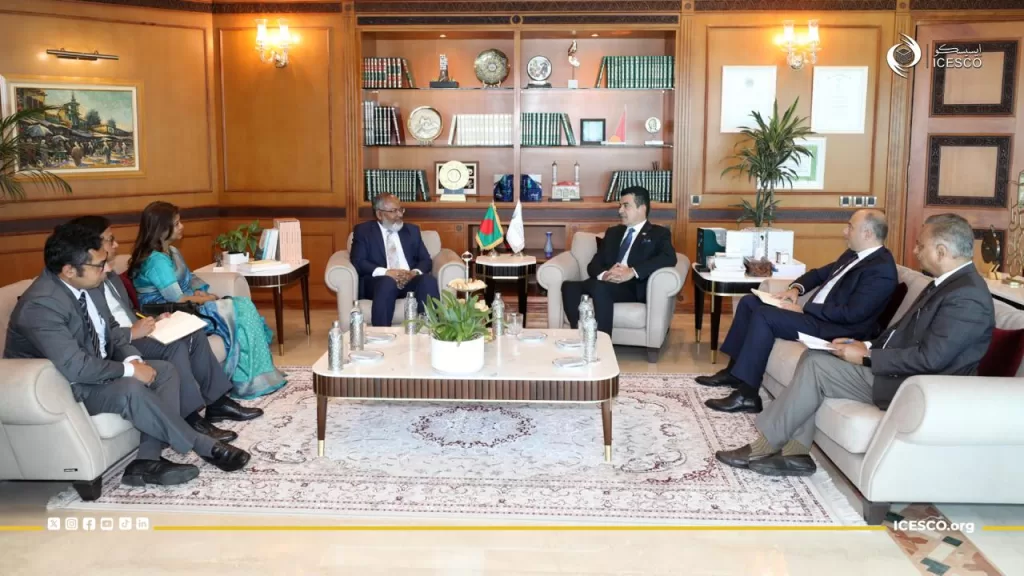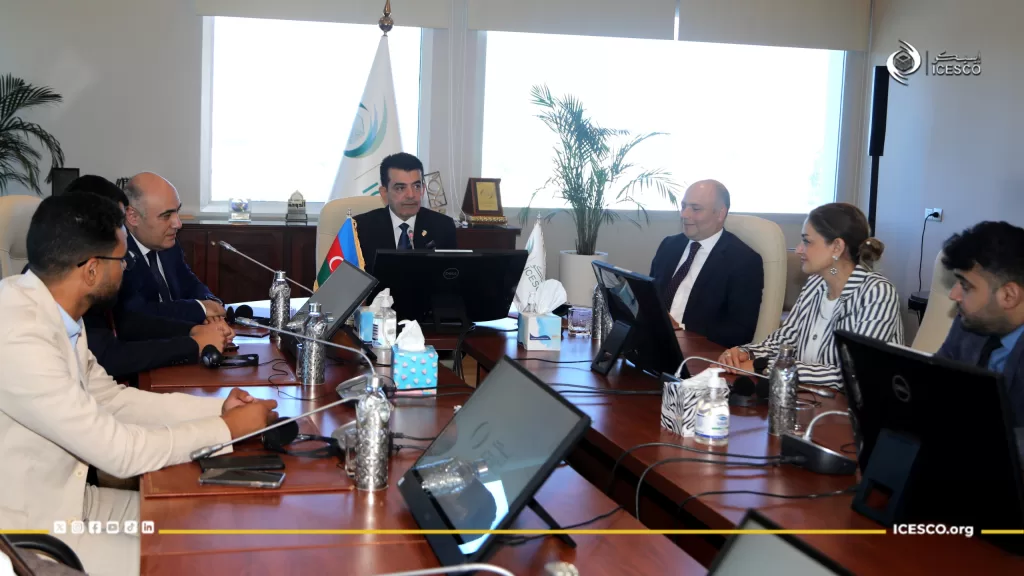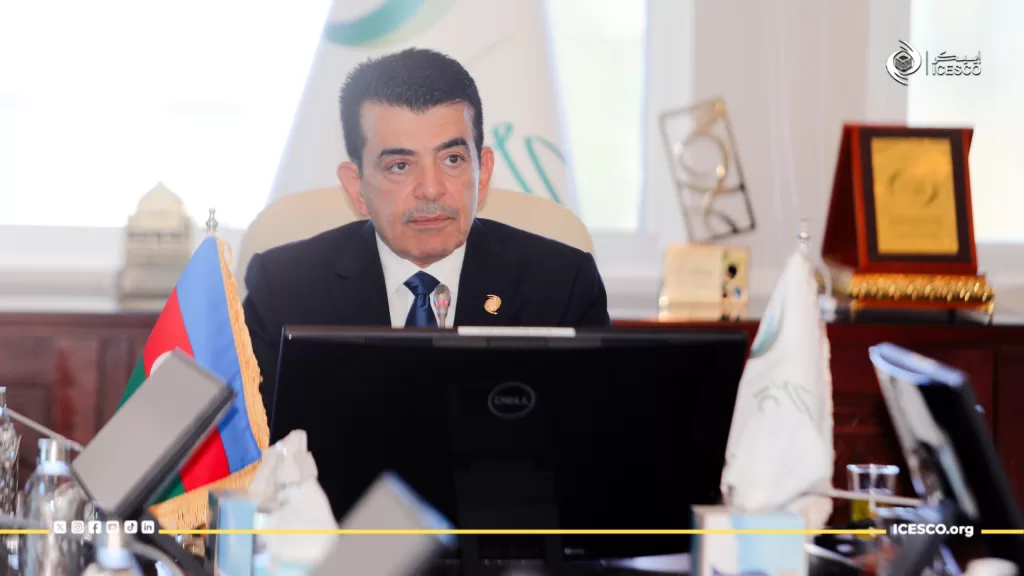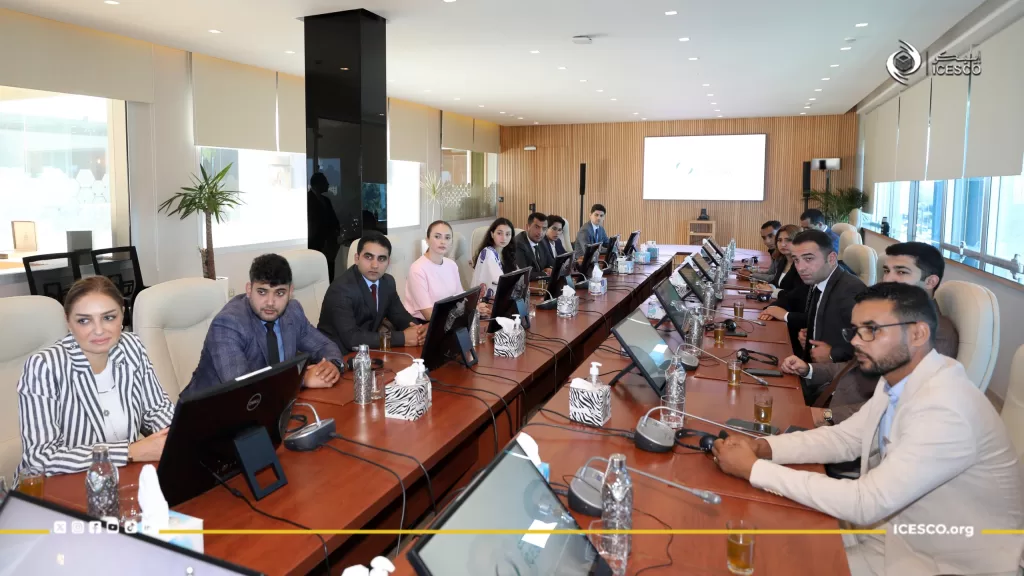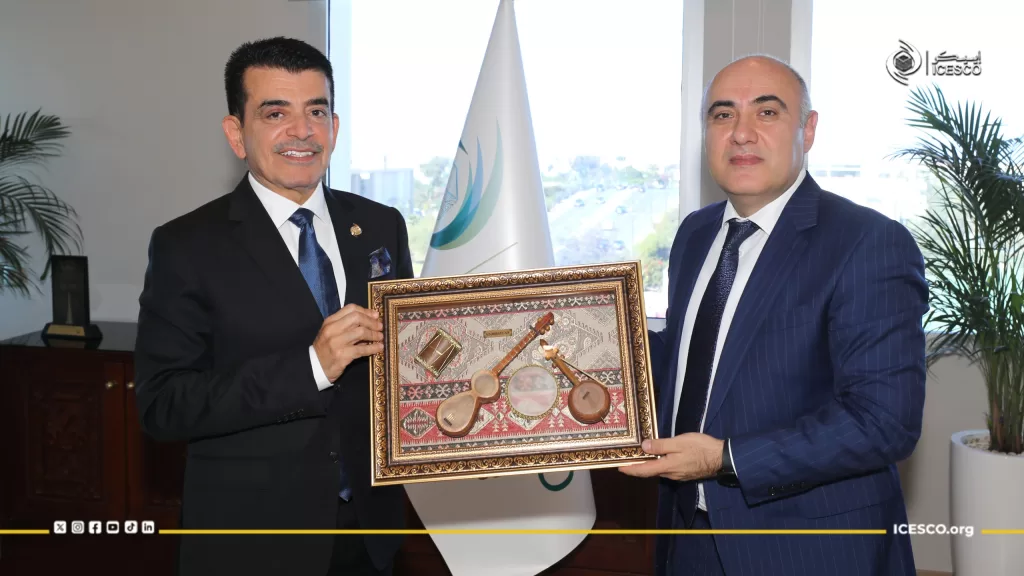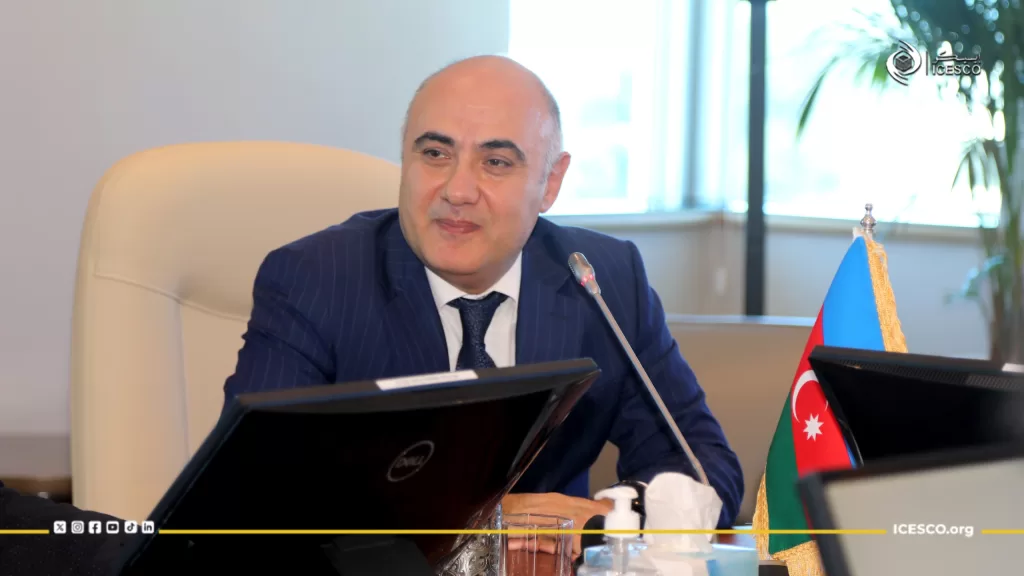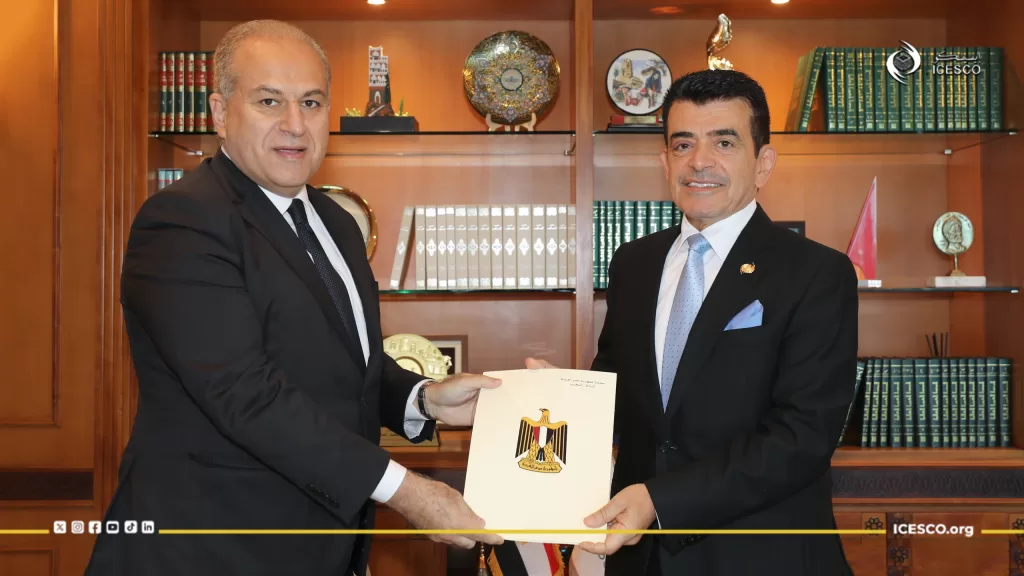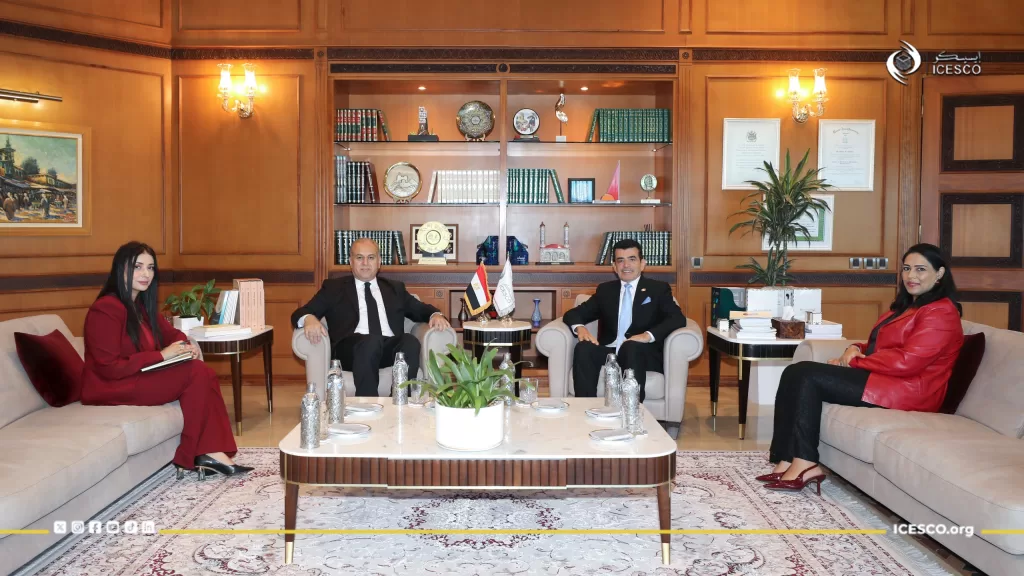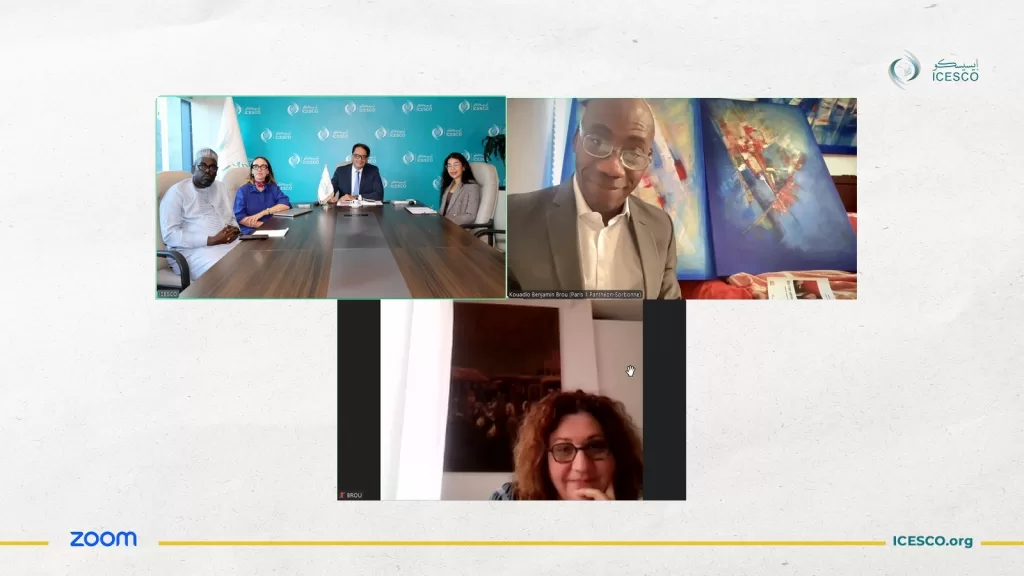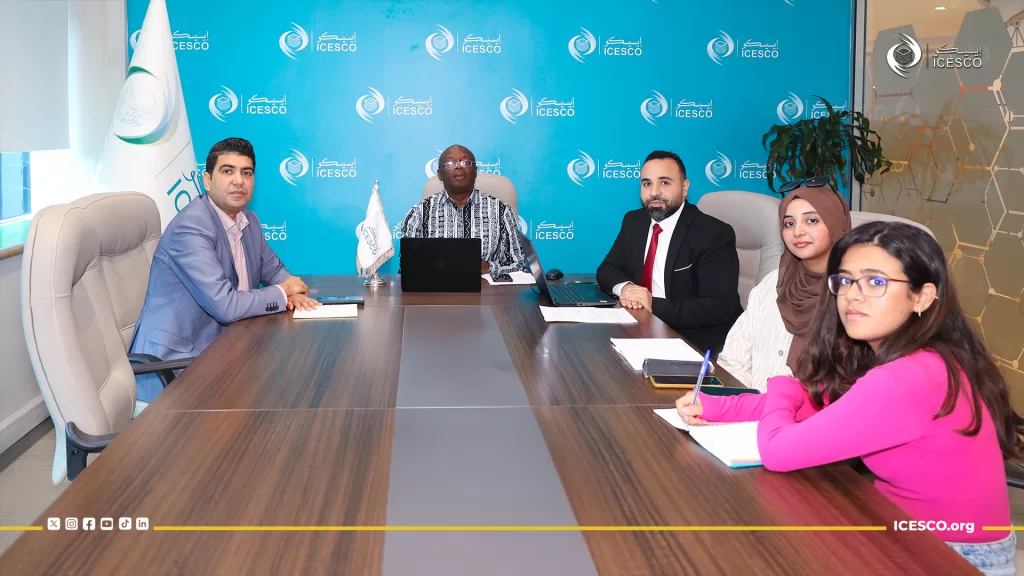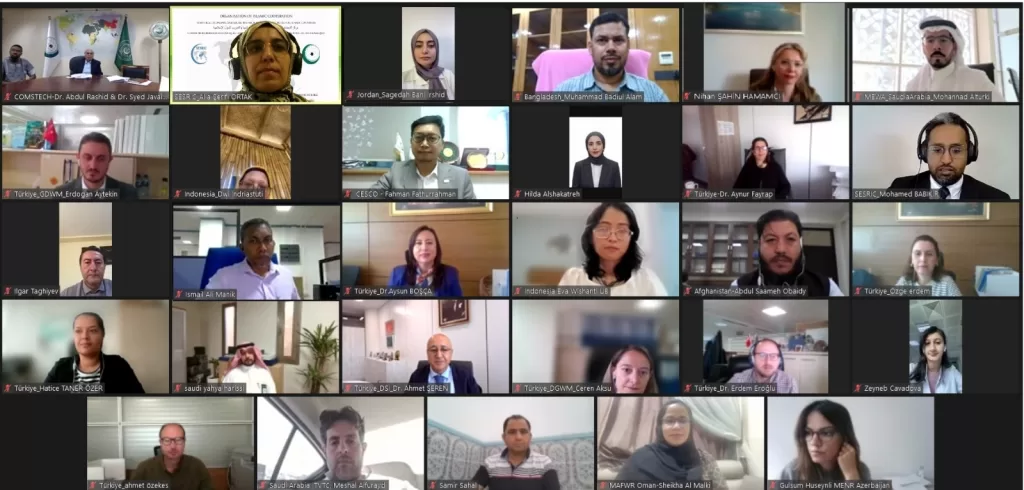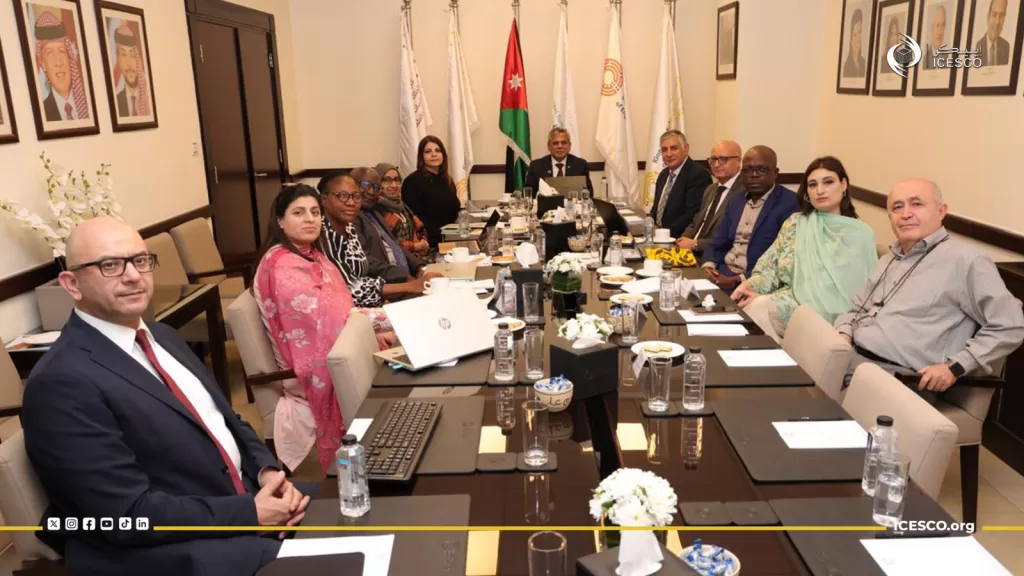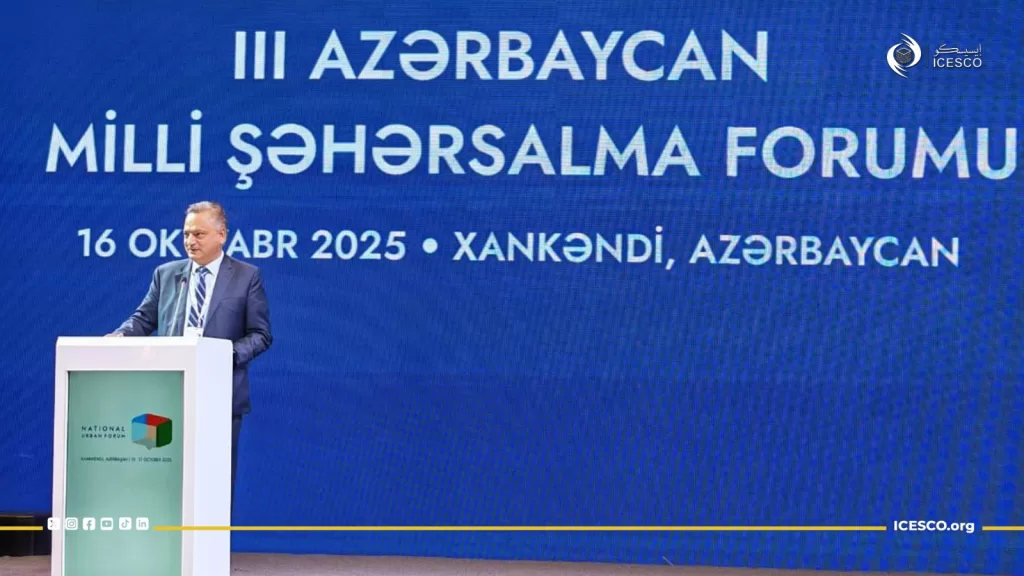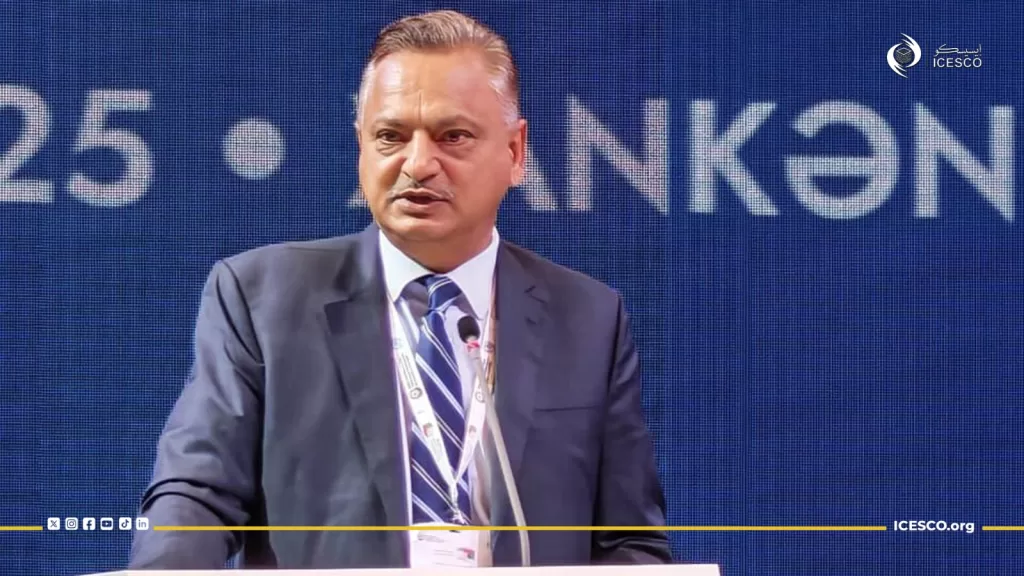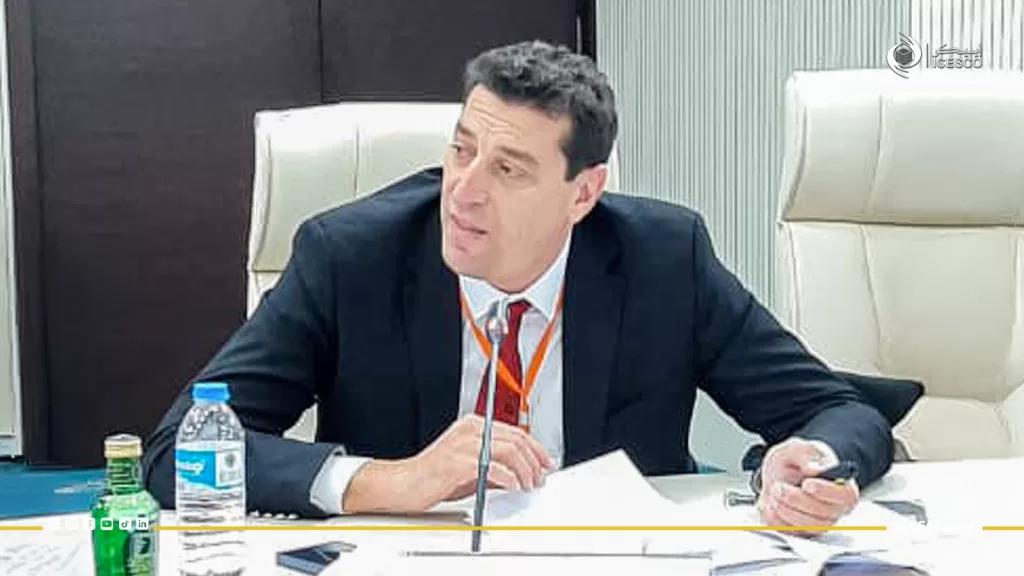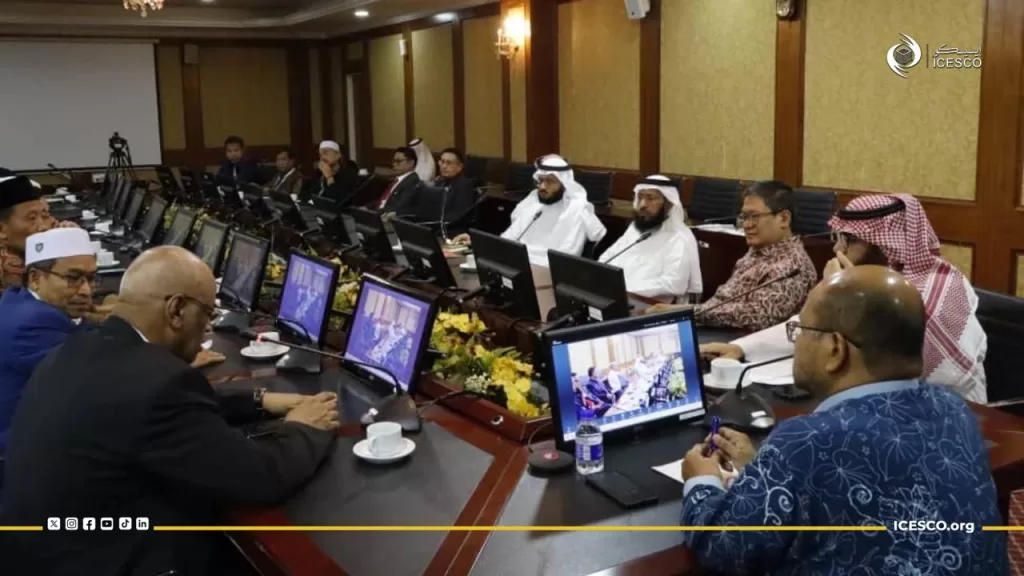Dr. Salim M. AlMalik, Director-General of the Islamic World Educational, Scientific and Cultural Organization (ICESCO), received Ambassador Dr. Muhammad Nazrul Islam, Inspector General of Missions at the Ministry of Foreign Affairs of Bangladesh, and his accompanying delegation, on Wednesday, 22 October 2025, at ICESCO Headquarters in Rabat. The two parties explored ways of strengthening bilateral cooperation in the Organization’s areas of action.
The meeting discussed the outcomes of Dr. AlMalik’s early October visit to Bangladesh, and the initiatives he announced during the major celebration organized by the Bangladeshi Ministry of Education on Sunday, 5 October 2025, to mark World Teachers’ Day. These initiatives include the launch of the ICESCO Teacher Award to honor outstanding educators, the implementation of a program to equip teachers with skills in using artificial intelligence in education, and the establishment of a research chair at the University of Dhaka for studies on women’s empowerment and capacity building.
Dr. AlMalik also briefed his guest on his meetings with several senior officials and advisors in Dhaka, and the discussions held on implementing programs and workshops to build the capacities of youth and women in scientific research, modern technologies, and artificial intelligence.
For his part, Ambassador Dr. Nazrul Islam expressed his deep appreciation for ICESCO’s efforts and its continued support to Member States, affirming his country’s keenness to benefit from the Organization’s expertise to advance its education, science, and culture sectors, and enhance the skills of Bangladeshi national competencies.
The meeting was attended by Mr. Anar Karimov, Head of Partnerships and International Cooperation Sector, and Dr. Raheel Qamar, Head of Science and Environment Sector at ICESCO, as well as Dr. Sadia Faizunnesa, Ambassador of the People’s Republic of Bangladesh to the Kingdom of Morocco, and Mr. Rajib Tripura, Consul at the Embassy.
